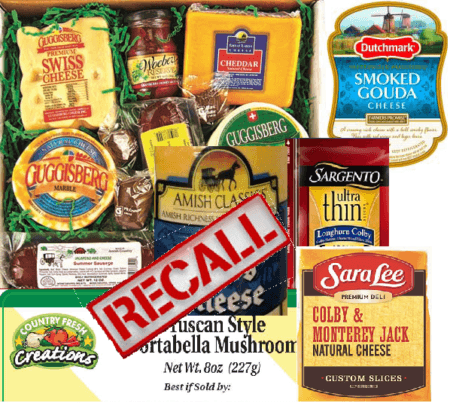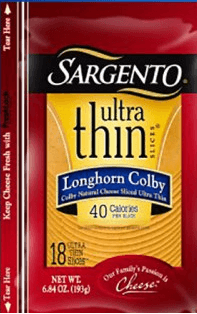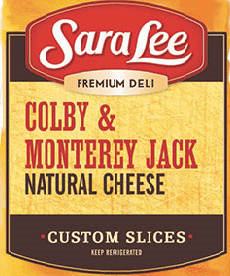Listeria contamination at Deutsch Käse Haus forced nationwide cheese recall
 The recall of cheeses due to the presence of Listeria monocytogenes in Deutsch Käse Haus caused a snowball effect since Deutsch Käse Haus is a business–to-business provider of cheeses.
The recall of cheeses due to the presence of Listeria monocytogenes in Deutsch Käse Haus caused a snowball effect since Deutsch Käse Haus is a business–to-business provider of cheeses.
Once a food recall is issued, each company that receives the contaminated products has to look at how contamination may have spread through its own plant. The situation becomes more complicated as supply chains grow longer and longer. The globalization of food supply chains makes widespread outbreaks more likely, and in some ways more difficult to track.
It is hoped that the new FDA regulation as shown in the draft “Control of Listeria monocytogenes in Ready-To-Eat Foods” will eliminate the repeat of the ripple effect of recalls.
How Deutsch Käse Haus Started the Snowball
On January 30 the Tennessee Department of Agriculture took a sample of the Amish Classic Colby from a store in Trenton, TN, and found it to be contaminated with Listeria monocytogenes (LM). By February 9, they posted an alert announcing a recall of Amish Classic cheeses and Meijer branded cheeses, all made by Deutsch Käse Haus, a company owned by Michigan Milk Producers association since fall 2016.
Since Deutsch Käse Haus is a business–to-business provider, a number of their customers were required to recall their products. The customers of these customers had again to notify their customers, resulting in a snowball effect.
The voluntary recall covered products made at Deutsch Käse Haus factory between September 1, 2016 and January 27, 2017. All the recalled products were produced by Deutsch Käse Haus. Meanwhile, all production has been suspended at the LaGrange County plant while the Food and Drug Administration (FDA) officials investigate the cause of the contamination.
The Snowball Effect
Sargento Foods Inc 
Sargento recalled seven of its branded sliced and shredded cheese products made by Deutsch Käse Haus. Products included Ultra Thin Slicked Longhorn Colby and Chef Blends Shredded Nacho & Taco Cheese. These products were made on the same line as five other products that Sargento recalled.
Taylor Farms
Secondary recalls related to Listeria discovered in cheese produced by Deutsch Käse Hausis have begun, with Taylor Farms recalling 6,630 pounds of chicken salad and pork products since they contain recalled Sargento cheese. The products packaged under the Signature Cafe and H-E-B brands were recalled. The problem was discovered on Feb. 10, 2017, when the establishments were notified of the recall by Sargento Foods, their supplier of Bevel Shred Pepperjack cheese products.
Country Fresh
Sargento’s products were also used by Country Fresh LLC in a number of cooking and snacking products. The firm recalled 2,552 cases of various kinds of stuffed mushrooms and other snacks that contained Sargento cheeses that were produced and packaged from February 6–9, 2017.
Choice Farm
It’s unclear if the cheese recalled by Choice Farm came from Sargento or Deutsch Käse Haus. The recall pertains to just seven trays of individually-wrapped mushrooms in the following flavors: Traditional Gourmet Portabella Mushrooms, Pizza Style Portabella Mushroomsand/or Stuffed Mushrooms. The products were sold on Feb. 10 at selected stores in Texas and Kansas.
MDS Foods Inc.
MDS Foods cut and packaged cheese from Deutsch Käse Haus, before distributing it under the Amish Classics brand. The firm recalled six cheese products that were found to have Listeria, and another 20 due to potential contamination. The cheese was labeled under various brands such as Amish Classics, Meijer, Deli Made EZ, Old Tyme, and Deli Readi.
Meijer
Meijer recalled its branded Colby cheeses after receiving notice from their supplier MDS that uses Deutsch Käse Haus Colby cheese. All Meijer branded “Colby Cheese” and “Colby Jack Cheese” sold in Meijer’s in-store deli counters (between from Nov. 10, 2016, through Feb. 9) were included in the recall.
Sara Lee 
Sara Lee recalled 734 cases of two types of cheese that were distributed to food retailers in Alabama, California, Louisiana, Michigan, Pennsylvania, and Texas. Three brands of cheese produced by Deutsch Käse Haus LLC and two brands of salads produced by Taylor Farms and included cheese recalled cheeses from Deutsch Käse Haus.
Guggisberg Cheese
Guggisberg Cheese, which owns Deutsch Käse Haus, recalled a dozen products, mostly cheese available at deli counters. The affected products were manufactured both by Guggisberg Cheese, Inc. and by Deutsch Käse Haus, under the Guggisberg label. These products were packaged in clear plastic and sold primarily in retail stores at deli counters and deli cases.
Dutch Valley Food Distributors, Schlabach branch
On 2/15/2017 the firm recalled products after they were notified by Deutsch Käse Haus that various cheese product they received may have been contaminated with LM.
Biery Cheese
On 02-15-17 the firm was notified by Deutsch Kase Haus, that they supplied Biery Cheese with various type cheeses that may be contaminated with LM. These products were packaged at Biery in Louisville, OH and distributed to distribution centers.
Saputo Inc
Saputo recalled certain Gouda cheese products after having been notified by Deutsch Kase Haus, that these products may have been contaminated with LM. The recalled products were sold to retailers nationwide. The Great Midwest Applewood® Smoked Gouda cheeses were sold primarily in retail stores at deli counters and deli cases.
How does Listeria Enter the Products?
Listeria Monocytogenes is present all around us, mainly on dust on the ground. Once Listeria enters into a manufacturing facility it is difficult to get rid of it. The primary reason for it is that LM tolerates salty environments and cold temperatures and can even continue to grow at temperatures as low as -5˚C. It is difficult to eliminate it; therefore the focus must be on prevention.
Contaminated boots can allow Listeria to enter the plans. Drains can harbor Listeria and must be properly maintained. It is important to keep the factory floors dry at all times, since Listeria like most other bacteria needs water to grow.
In the FDA Draft Guidance for Industry: “Control of Listeria monocytogenes in Ready-To-Eat Foods” there are detailed recommendations on how to control Listeria. The FDA encourages a “seek and destroy” approach.
FDA new rules RTE products- Listeria
For the first time, FDA has a legislative mandate that will require comprehensive prevention-based controls across the food supply to prevent or significantly minimize the likelihood of problems related to LM.
Facilities have “one free pass” of detecting Listeria in the environment and continue production, without a need to stop production. The finding still requires the performance of root cause analysis, extensive cleaning, sanitation, retesting, and investigation.
In the draft, there is a differentiation between low risk (do not support more than 1 log of growth) and high risk products. This differentiation affects the monitoring regiment as well as corrective action that need to be taken. The guidance discusses product formulating as a mean to control of Listeria. The formulation must limit the growth of Listeria to less than one log. To be considered Listeria reduction a process must reduce it by 5 logs.
There are instructions on how to develop a robust environmental, sanitation and supplier verification programs. The goal is to find Listeria and eliminating the source of contamination. There is an emphasis on record keeping. There is a lengthy discussion on corrective actions should an environmental sample be found positive.
If LM is detected on Food Contact Surfaces (FCS), the food should be reprocessed, diverted or destroyed. The firm should consider a recall.
The guidance includes recommendations for controls involving personnel, cleaning and maintenance of equipment, and sanitation, as well as for treatments that kill Listeria monocytogenes and formulations to prevent it from growing during storage of the food between production and consumption.
